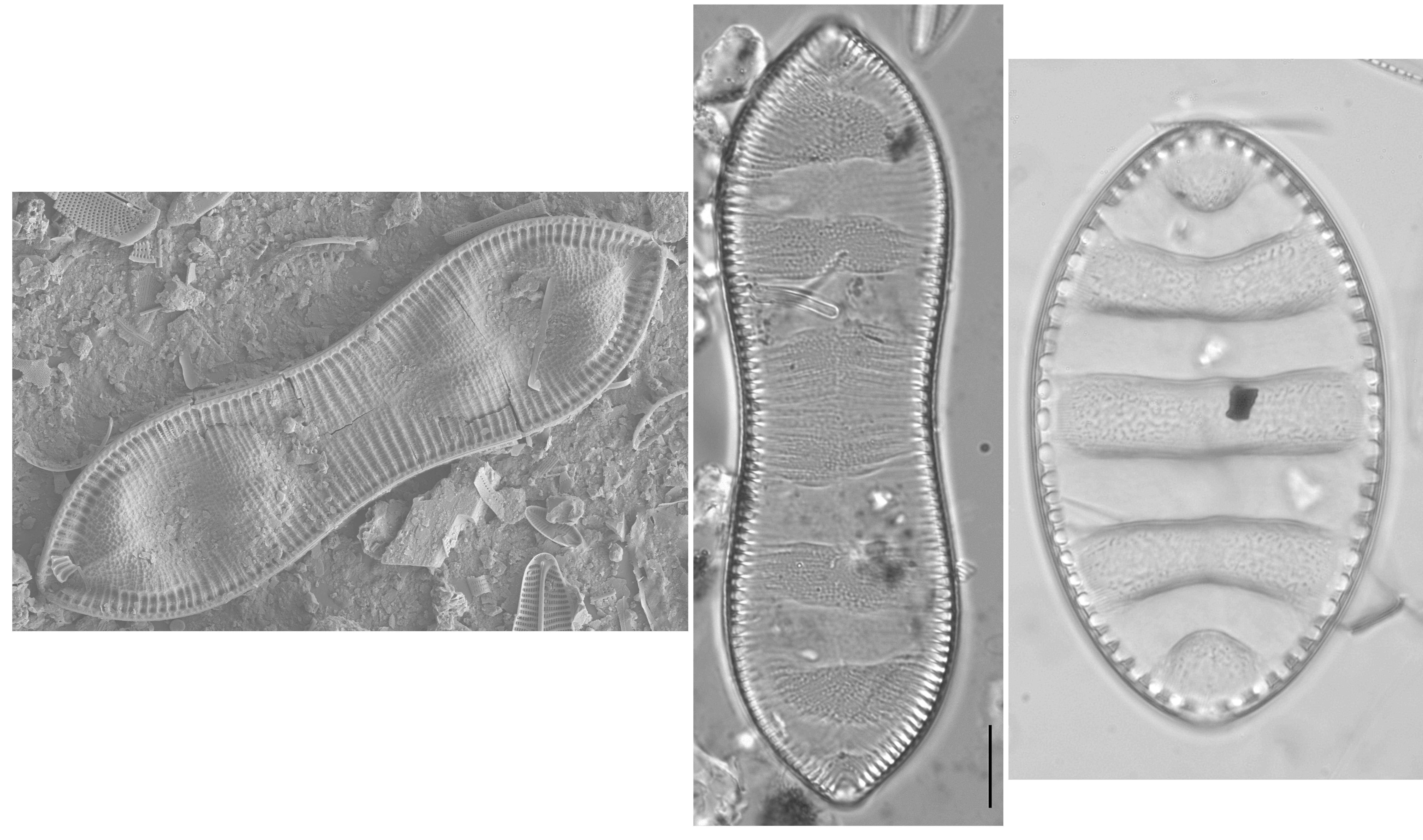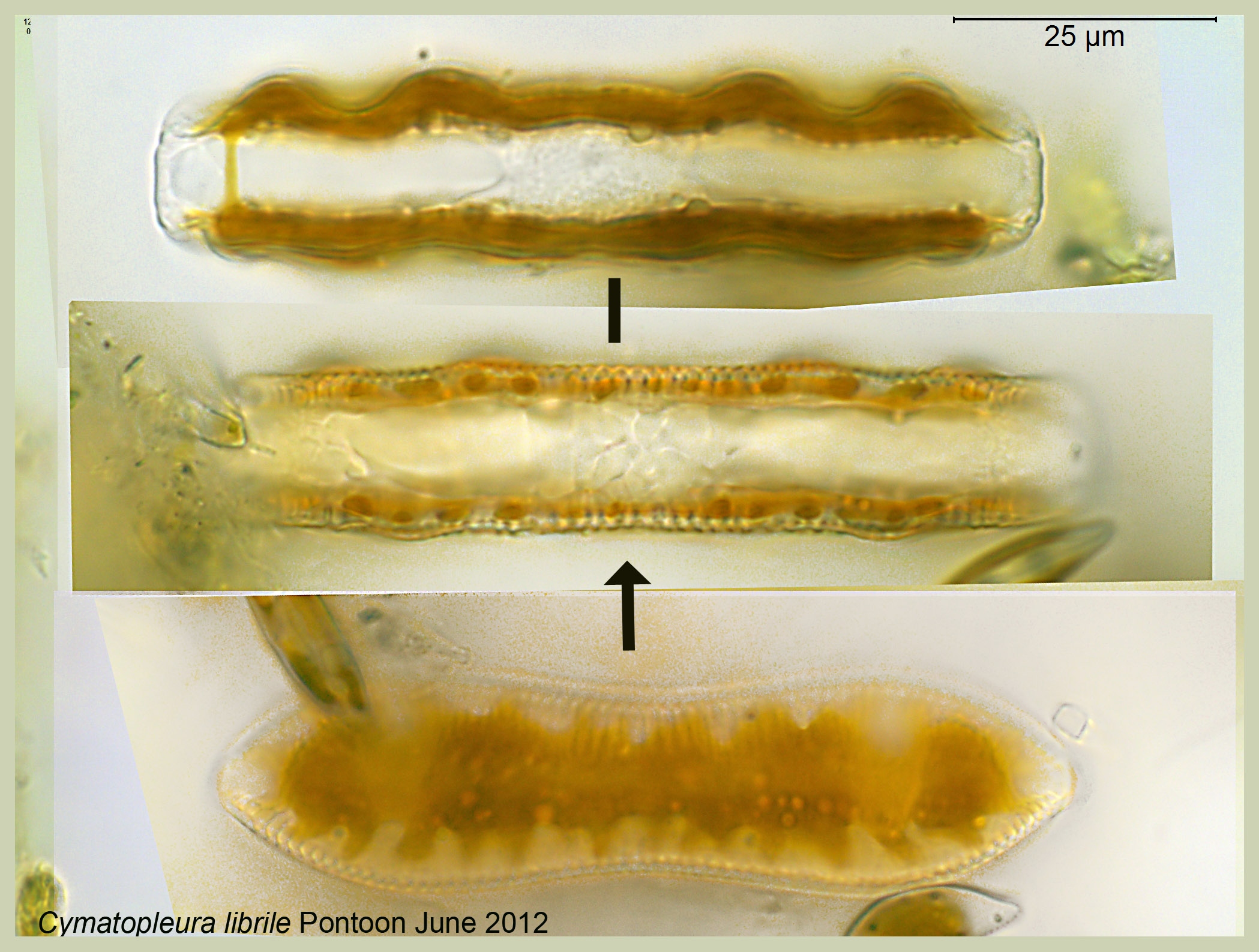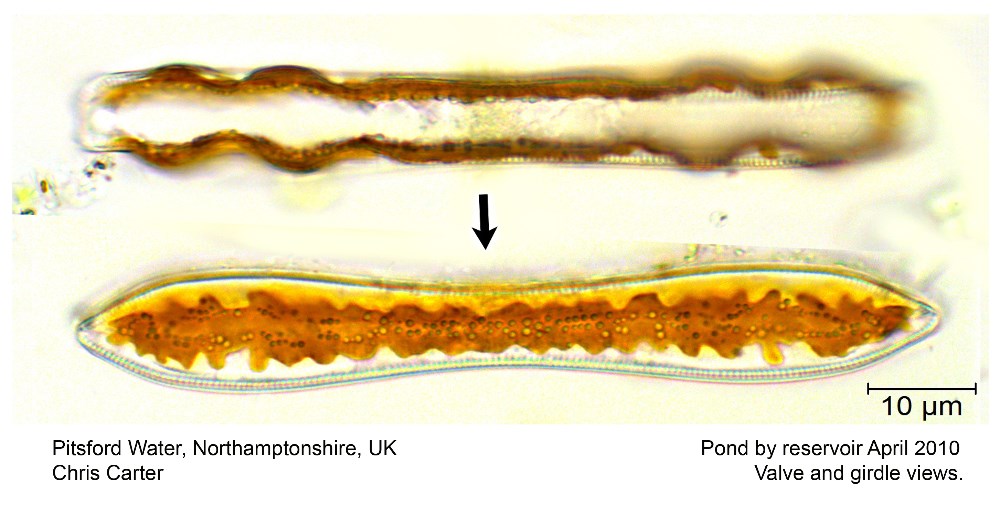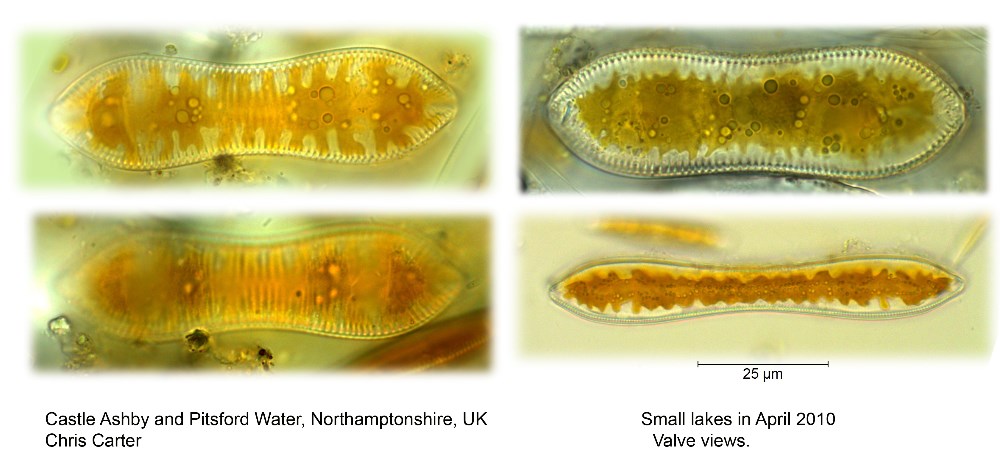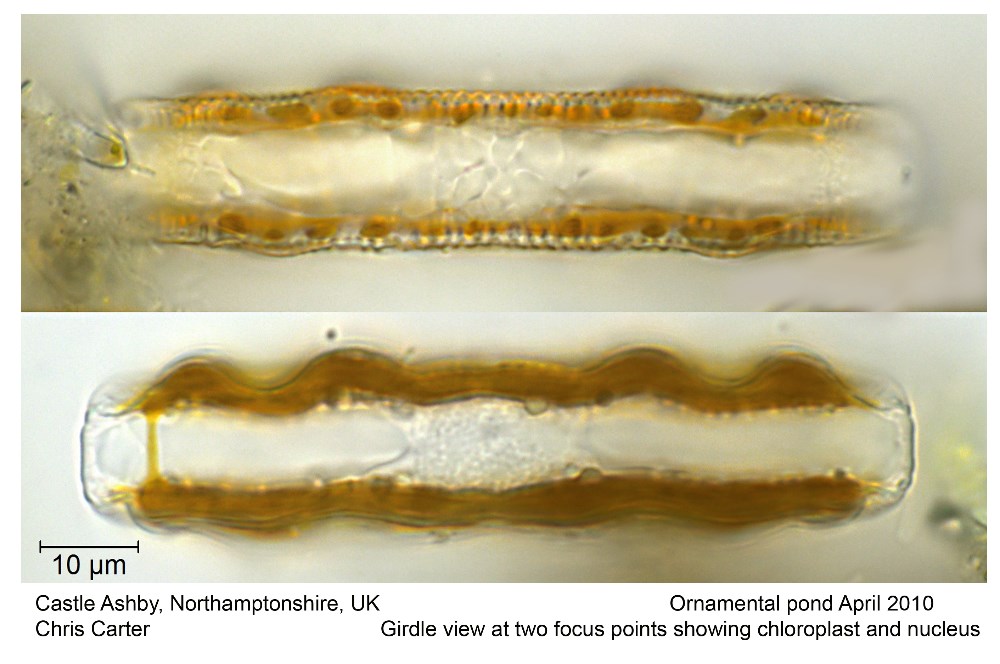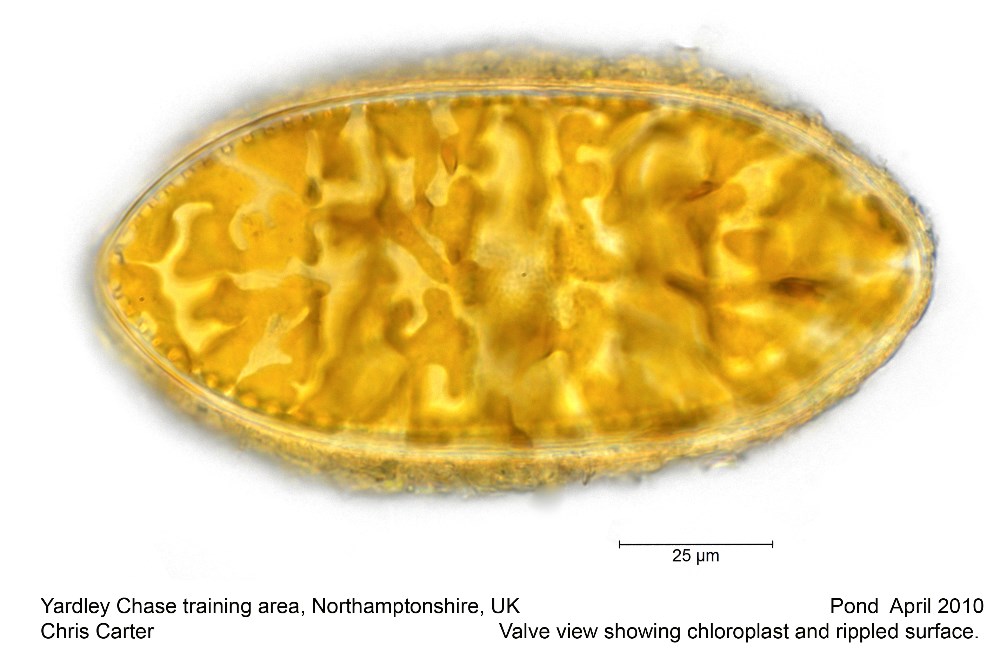Cymatopleura W. Smith ; 1851; 12
Key references
Mann D.G. 1987. Sexual reproduction in Cymatopleura. Diatom Research. 2(1): 97-112.
Round F.E., Crawford R.M., Mann D.G. 1990. The Diatoms. Biology & Morphology of the Genera. Cambridge University Press, Cambridge. 747 pp
Morphology
Cells panduriform, linear, elliptical, subcircular or lanceolate in valve view; girdle narrow and cells therefore generally lying in valve view.
Frustules isopolar, isovalvar, bilaterally symmetrical.
The fibulate raphe system occupies the whole circumference of the valve, except for brief interruptions (i.e. raphe endings) at each pole. As in other related ‘surirelloid’ diatoms (e.g. Surirella, Campylodiscus, Stenopterobia), one end of the cell is structurally and developmentally equivalent to the centre of other biraphid diatoms, whereas the other is equivalent to both poles.
Surface of valve face undulating along the valve, with alternately raised and depressed sections. Valves strongly silicified, often with costae or reticulate thickenings.
Striae uniseriate, fine, and difficult to distinguish in LM because of the thickenings mentioned; areolae small, round.
Raphe on a keel positioned along the valve margin, with simple or curved endings at both poles externally and a continuous grove internally, subtended by rib-like fibulae, which appear in LM as short lines perpendicular to the margin.
Girdle band open.
A single chloroplast, composed of two plates connected at or near one pole, sometimes (e.g. in C. elliptica) extremely complexly lobed.
Cells solitary, highly motile, unattached.
Frustules isopolar, isovalvar, bilaterally symmetrical.
The fibulate raphe system occupies the whole circumference of the valve, except for brief interruptions (i.e. raphe endings) at each pole. As in other related ‘surirelloid’ diatoms (e.g. Surirella, Campylodiscus, Stenopterobia), one end of the cell is structurally and developmentally equivalent to the centre of other biraphid diatoms, whereas the other is equivalent to both poles.
Surface of valve face undulating along the valve, with alternately raised and depressed sections. Valves strongly silicified, often with costae or reticulate thickenings.
Striae uniseriate, fine, and difficult to distinguish in LM because of the thickenings mentioned; areolae small, round.
Raphe on a keel positioned along the valve margin, with simple or curved endings at both poles externally and a continuous grove internally, subtended by rib-like fibulae, which appear in LM as short lines perpendicular to the margin.
Girdle band open.
A single chloroplast, composed of two plates connected at or near one pole, sometimes (e.g. in C. elliptica) extremely complexly lobed.
Cells solitary, highly motile, unattached.
Literature
References are given in chronological order.
Reference |
Citation |
|---|---|
| Smith W. 1851. Notes on the Diatomaceae, with descriptions of British Species included in the genera Campylodiscus, Surirella and Cymatopleura. Annals and Magazine of Natural History, 2nd series, Vol. 7. 1-14; 3 pls. | Morphology; Taxonomy; Description; Illustrations |
| Mann D.G. 1987. Sexual reproduction in Cymatopleura. Diatom Research. 2(1): 97-112. | Morphology; Illustrations; Biology; |
| Round F.E., Crawford R.M., Mann D.G. 1990. The Diatoms. Biology & Morphology of the Genera. Cambridge University Press, Cambridge. 747 pp | Morphology; Illustrations; |
| Ruck E.C., Kociolek J.P. 2005. Preliminary phylogeny of the Family Surirellaceae (Bacillariophyta). 50. Bibliotheca Diatomologica. 1-236 pp | Biology |
| Cocquyt C., Jahn R. 2014. A re-investigation of Otto Müller's Cymatopleura taxa (Bacillariophyta) from East Africa. Plant Ecology and Evolution. 147(3): 412-425. | Morphology; Illustrations; Taxonomy; Ecology |
| Jahn R., Kusber W.-H., Cocquyt C. 2017. Differentiating Iconella from Surirella (Bacillariophyceae): typifying four Ehrenberg names and a preliminary checklist of the African taxa. PhytoKeys. 82: 73-112. | Morphology; Taxonomy; Illustrations |
This page should be cited as:
Cymatopleura W. Smith ; 1851; 12. In: Jüttner I., Carter C., Cox E.J., Ector L., Jones V., Kelly M.G., Kennedy B., Mann D.G., Turner J. A., Van de Vijver B., Wetzel C.E., Williams D.M..
Freshwater Diatom Flora of Britain and Ireland. Amgueddfa Cymru - National Museum Wales. Available online at https://naturalhistory.museumwales.ac.uk/diatoms/browsespecies.php?-recid=3959. [Accessed:
].
Record last modified: 27/12/2020


